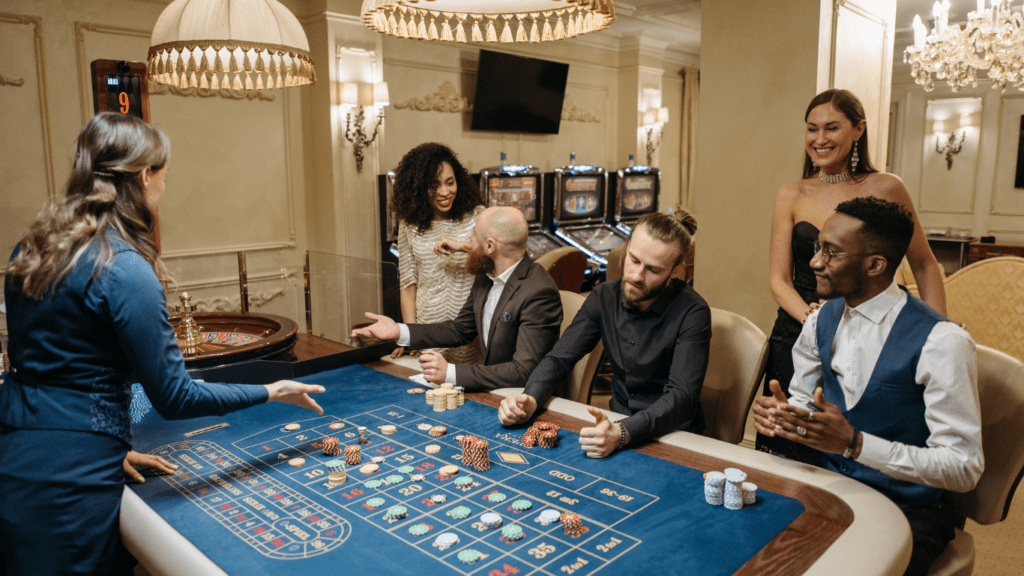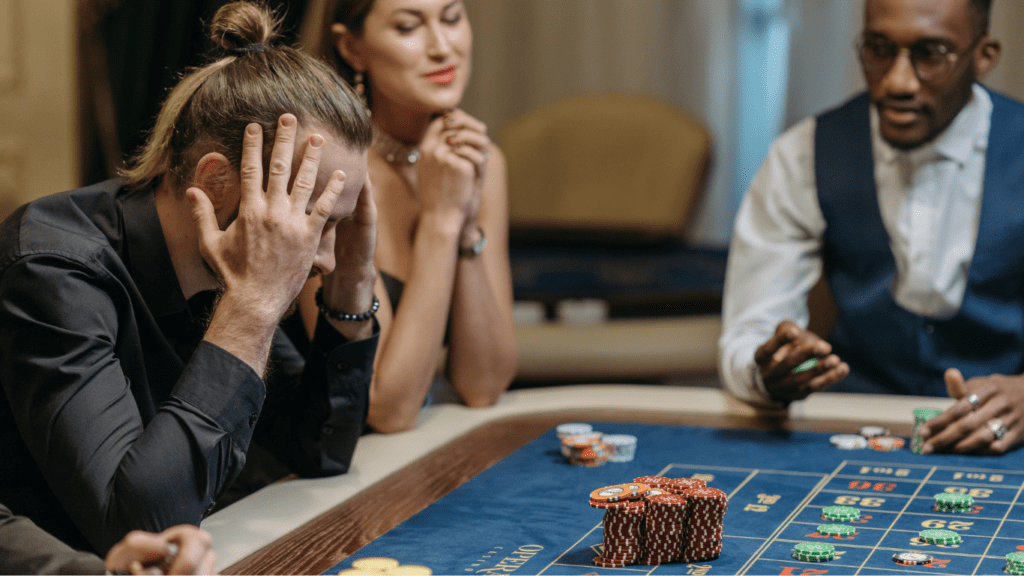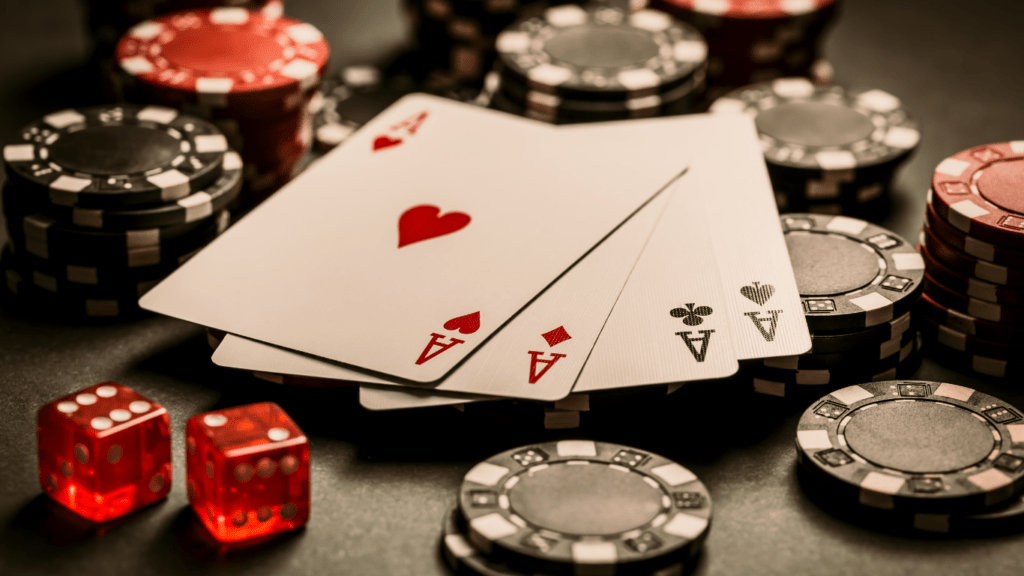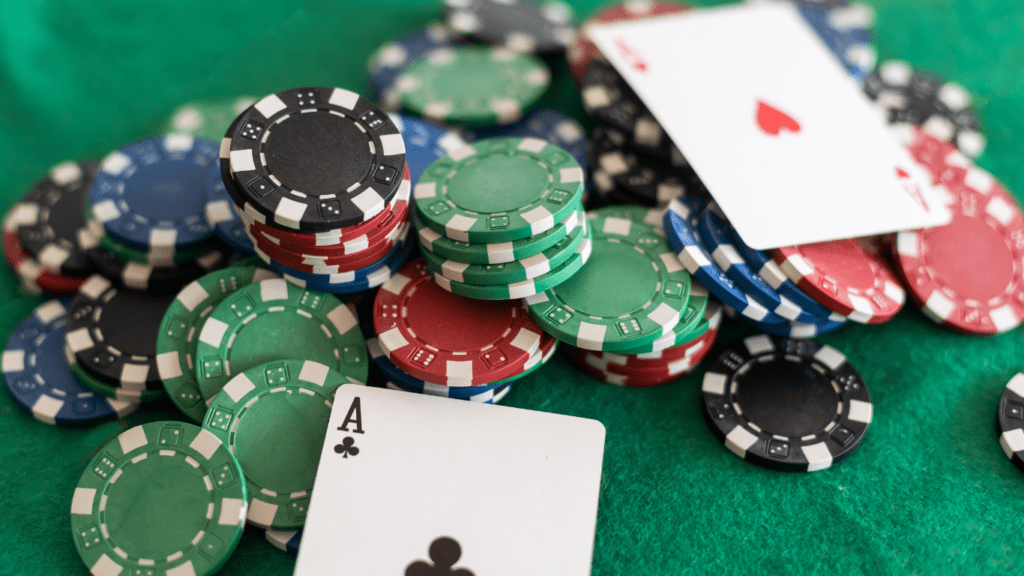Understanding the Allure of Gambling
Gambling offers a unique blend of uncertainty and anticipation that captivates many. The thrill stems from a combination of variable rewards and immediate feedback which trigger dopamine release in the brain. According to neuroscientists, this response mimics the effects seen with addictive substances and activities.
Among the factors is the “near-miss” experience, a powerful driver in gambling. Individuals often feel a sense of almost winning, encouraging continued play. Researchers have shown that near-misses activate similar brain areas as actual wins, reinforcing the urge to gamble.
Social aspects play a vital role as well. Casinos and online platforms often design environments that encourage social interaction and camaraderie. A study from Harvard University illustrates that shared experiences can elevate gambling’s appeal, enhancing the enjoyment derived from risk-taking activities.
Furthermore, cognitive biases like the “gambler’s fallacy” contribute to gambling’s allure. People may believe that past outcomes influence future results, despite randomness. This biased reasoning maintains engagement by fostering hope for eventual success.
Understanding these psychological pulls helps demystify why gambling remains so compelling. Insights from recent studies continue to shed light on these behaviors, offering valuable perspectives for both individuals and professionals engaged in the broader analysis of human behavior.
Latest Research Findings on Gambling Behavior
Recent studies delve into gambling behavior, exploring cognitive biases and the balance between risk and reward.
Cognitive Biases in Gambling
Cognitive biases shape gambling behavior, influencing decision-making. Research identifies biases like the “illusion of control,” which leads gamblers to believe they’re controlling random outcomes.
This perception increases engagement and betting frequency. Studies also highlight the “availability heuristic,” which makes memorable wins seem more common, thus encouraging continued gambling. Understanding these biases is crucial, shedding light on distorted perceptions that fuel gambling activity.
The Role of Risk and Reward
- Risk and reward play central roles in gambling behavior.
- Findings show that dopamine release during gambling creates a cycle of anticipation and satisfaction.
- Researchers have found that high-risk, high-reward scenarios increase excitement, driving players to take more significant chances.
- The “near-miss” phenomenon further impacts behavior, as players often perceive near-wins as more rewarding than actual losses, suggesting that the thrill of almost winning can perpetuate wagering.
- These insights emphasize the complex interplay of risk and reward in sustaining gambling engagement.
Psychological Disorders Related to Gambling

Gambling’s complexity often leads to numerous psychological disorders. Recognizing these connections is essential for effective treatment and understanding.
Gambling Addiction and Recovery
Gambling addiction, or compulsive gambling, is a significant psychological disorder. Clinically referred to as gambling disorder, it’s characterized by persistent and recurrent problematic gambling behavior, leading to distress and life disruption.
According to the American Psychiatric Association, individuals with this disorder exhibit preoccupation with gambling, increased bets for excitement, and unsuccessful efforts to cut back. They may also lie about their gambling or jeopardize relationships and careers.
Recovery from gambling addiction involves various therapeutic strategies. Cognitive-behavioral therapy (CBT) is often effective, targeting distorted thinking and urging healthier responses to gambling triggers.
Support groups such as Gamblers Anonymous provide a social framework for recovery. In severe cases, medication, like antidepressants, may aid in managing symptoms. Personalized counseling caters to individual needs, ensuring a tailored approach for sustained recovery.
Impact on Mental Health
Gambling profoundly impacts mental health, often triggering anxiety and depression. Regular gambling increases:
- stress levels
- contributes to mood disorders
The financial strain and social isolation resulting from gambling losses can exacerbate these issues.
Research indicates that individuals with gambling disorders frequently report suicidal thoughts and attempts. The Mayo Clinic highlights that those affected often feel hopeless and entrapped by their circumstances.
Mental health professionals emphasize the necessity of integrated treatment programs addressing both gambling and associated mental health disorders. By focusing on holistic recovery, these programs aim to restore emotional and psychological balance.
Social Factors Influencing Gambling
Social dynamics play a critical role in shaping gambling behaviors. Understanding these influences becomes essential in analyzing gambling tendencies.
Peer Pressure and Social Environment
Social settings significantly impact gambling habits. Group activities, like casino visits with friends, often promote continuity in gambling behaviors. I’ll note that peer pressure is a strong motivator. Individuals may engage in gambling to fit in or gain acceptance within a social circle.
Observations suggest that witnessing friends’ successes or losses can also influence personal gambling decisions. Social networks reinforce gambling habits when they consistently celebrate wins or downplay losses, creating an emotionally charged environment.
Economic Impact and Accessibility
Economic conditions make gambling a more accessible pastime. Low-income individuals frequently see it as a potential financial escape, despite potential risks. The rise of online platforms has increased convenience, allowing gambling access from anywhere. Promotional offers and free trials serve as powerful incentives for continuous engagement.
Data indicates that areas with higher poverty rates often have more gambling facilities, indicating economic targeting. The ready availability of gambling options contributes to higher participant numbers, with easy access to funding mechanisms, like credit cards, lowering entry barriers.
New Methods in Gambling Research
Recent innovations in research methods are enhancing our understanding of gambling behavior. Researchers are leveraging technology and long-term data collection to uncover deeper insights into gambling’s psychological aspects.
Technological Advances
Researchers are employing sophisticated tools like biometric sensors and virtual reality (VR) to analyze gambling behavior more effectively. Biometric sensors track physiological responses, such as heart rate and skin conductance, during gambling sessions.
These measurements provide real-time data on emotional states, highlighting triggers of excitement or stress. VR environments simulate gambling scenarios, offering controlled settings to study decision-making processes in immersive contexts. These technological platforms enable researchers to explore how environmental design and sensory inputs influence gambling behaviors.
Longitudinal Studies
Longitudinal studies are providing valuable insights into gambling’s progression and its effects over time. By tracking participants over extended periods, these studies reveal patterns in gambling behavior and its long-term psychological impacts.
Data from such research show how early exposure to gambling can influence future habits and the likelihood of developing gambling-related disorders. Longitudinal studies also help identify risk factors contributing to sustained gambling and facilitate the development of targeted interventions for prevention and treatment.


 Pearlee Conleyora
Founder
Pearlee Conleyora is the visionary founder of Jackpot Lucky Deal, a platform dedicated to bringing jackpot enthusiasts the latest news, effective strategies, and insights into the ever-evolving world of jackpots and gaming. With extensive experience in online gaming and a keen understanding of the growing role of cryptocurrency in jackpots, Pearlee created Jackpot Lucky Deal to serve as a trusted resource. Her commitment to responsible betting and innovative jackpot strategies shines through every aspect of the site, ensuring that users not only have the tools to play smarter but also stay updated on trends and technological advancements in the gaming world. Pearlee’s leadership and forward-thinking approach are the backbone of Jackpot Lucky Deal, where her goal is to create a comprehensive, user-friendly platform that empowers both novice and seasoned jackpot players.
Pearlee Conleyora
Founder
Pearlee Conleyora is the visionary founder of Jackpot Lucky Deal, a platform dedicated to bringing jackpot enthusiasts the latest news, effective strategies, and insights into the ever-evolving world of jackpots and gaming. With extensive experience in online gaming and a keen understanding of the growing role of cryptocurrency in jackpots, Pearlee created Jackpot Lucky Deal to serve as a trusted resource. Her commitment to responsible betting and innovative jackpot strategies shines through every aspect of the site, ensuring that users not only have the tools to play smarter but also stay updated on trends and technological advancements in the gaming world. Pearlee’s leadership and forward-thinking approach are the backbone of Jackpot Lucky Deal, where her goal is to create a comprehensive, user-friendly platform that empowers both novice and seasoned jackpot players.

